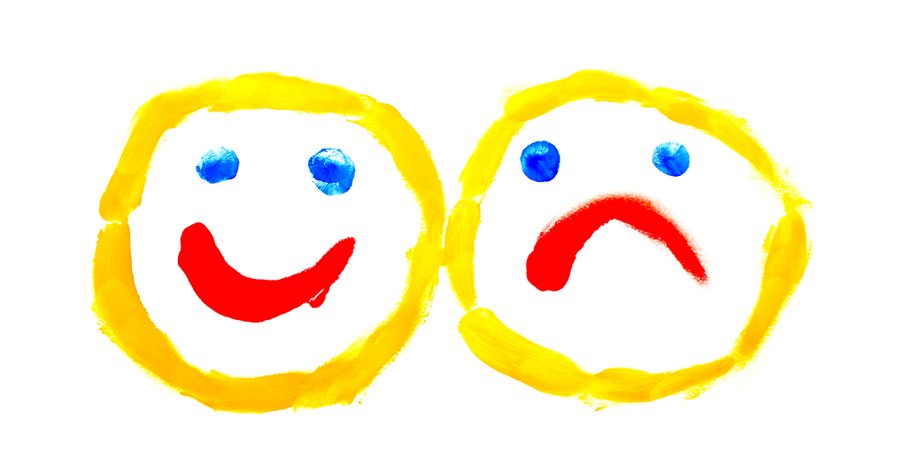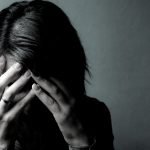- Bipolar Disorder in children has grown 20 times faster than the growth in the diagnoses of adult bipolar disorder over the last 20 years
- Teenage suicides are and teenage psychotic breakdowns are both on the rise
- And the medical community’s answer to these increases is to promote ever greater use of mind-altering drugs
Children Diagnosed With Bipolar Disorder Spiked
According to a study published in the Archives of General Psychiatry, the number of children diagnosed with bipolar disorder in the decade from 1994-2003 jumped – not 25%, not 50%, not 100%, not 500%, not even 1000%, but – a mind-numbing 4,000%. That’s 20 times faster than the growth in the diagnoses of adult bipolar-disorder over the same decade. And that trend has continued over the years since.
We’re not talking about small numbers here like an increase from 10 children to 400 children. No! We’re talking about an increase from 20,000 children treated for bi-polar disorder in 1994 to 800,000 treated in 2003.
Why The Numbers Are Rising
According to study researcher Mark Olfson, MD, MPH, professor of clinical psychiatry at Columbia University Medical Center and New York State Psychiatric Institute, “The study does not tell us why so many more kids are being diagnosed and treated for bipolar disorder. But it gives us clues.”
What clues? Among others:
- More bipolar disorder in children should mean a corresponding increase in adults with bipolar disorder. That isn’t happening. This means we’re either discovering previously unrecognized bipolar disorder in children, or that we’re misdiagnosing children.
- Youths diagnosed with bipolar disorder are more likely than adults to also be diagnosed with ADHD (attention deficit hyperactivity disorder).
- Most adults diagnosed with bipolar disorder are female. Most children and teens diagnosed with bipolar disorder are male. Most of these people are boys around age 12, and many have ADHD or at least are treated for that with stimulants.
- During the 10 years covered by the study, the diagnostic criteria for bipolar disorder have broadened. Many adults and young people who would not have been considered to have bipolar disorder now are.
Dr. Thomas R. Insel, director of the National Institute of Mental Health, which funded the study, in a massive bit of understatement, called the increase in bipolar diagnoses worrisome. “The way the label is being used is probably a little exuberant,” Insel said.
“A little exuberant.” Jack the Ripper was “a little exuberant.” Subjecting an entire generation of children to a regimen of prescription psychotropic drugs is an abomination. That’s right. Most of these kids diagnosed with bipolar disorder were treated with powerful psychotropic drugs. We’re talking about anti-psychotics, mood stabilizers, antidepressants, and stimulants.
The Impact of Children on Psychotropic Drugs
And to what effect? Under the watchful eye of the medical community (and modern psychiatry in particular), teenage suicides are up yet again, and teenage psychotic breakdowns are also on the rise. Keep in mind that guns were available 20 years ago, and yet how often did you hear of students going to school and massacring their classmates? Make no mistake — these dramatic increases have occurred at exactly the same time as young people have been prescribed ever more psychotropic drugs. And the medical community’s answer to these increases is to promote even greater use of mind altering drugs.
As Ben Franklin said, “Insanity is doing the same thing over and over and expecting different results.” Based on that definition, perhaps the modern psychiatric community qualifies as insane. Perhaps, as insane people, they should follow their own prescription. Why not place everyone in the psychiatric community on psychotropic drugs to deal with their mass insanity? Or perhaps they already are!












Hi Jon,
I agree with your stance on this. It is no coincidence that society gets worse the more psychiatrists and their drugs get more enmeshed and implemented in our school systems, work places, etc. It’s fact that every school shooting (including Cho or whatever his name was at Va Tech) were all on psychiatric drugs.
And to add to the pot, the pushers, Lilly, GSK, and the other big drug companies make billions upon billions. So there is no coincidence with “”more kids being labeled””. And don’t forget the doctors who get a kickback on prescriptions – regular MD’s. There’s enough money to spread around so it’s worth it to the drug companies to buy doctors, politicians, etc.
The Citizens Commission on Human Rights has been on the leading edge of bringing awareness and solutions to this problem of over drugging our kids. I recently saw the DVD they put together called Psychiatry: An Industry of Death. I recommend watching this to learn the history of psychiatry as well as its many enmeshed tentacles into and around our society as a whole. It’s pretty eye opening.
Parents specifically need to be made more aware that their children don’t have mental diseases just deficiencies in proper food/nutrition and are missing basic building blocks such as vitamins and minerals and are fed bad things in their place such as sugar laden cereals to start the day and other chemicals and presevratives which only serve to further deplete the body creating “”false”” symptoms.
But yes, misdiagnoses is for sure. But did you know that the DSM (Diagnostic & Statistic Manual I think) has all sorts of asinine “”disorders””? At the rate that this publication (the DSM) is going, everyone and his uncle will be “”crazy”” and needing the latest drugs. With some of the things that are already in there it wont be long before other stuff is included such as “”breathing normal disorder”” or the “”got out of bed this morning disorder””.
No coincidence. Plain evil.
Jon,
As a mother of a child who was dx with BP two years ago, I am very interested in this phenomenon. I have my own theories:
When children are out of control, parents don’t know what to do. They don’t seek help, however, until things are at a crisis level. The parents and child have a dysfunctional relationship – and suddenly these heavy duty meds help (even though they do not address the poor relationships in the past).
The diagnostic criteria leans heavily on the family history side – my son was dx with BiPolar because my grandmother was ‘manic depressive’; a great grandfather committed suicide, and my husband’s siblings were all addicts of one form or another. Then, MY sister was dx at the age of 16 – and my son’s dx played a role in that. Another sister was dx a little later on – based on my son’s dx and 16 year old sister’s dx. It’s a cycle – you are dx based on family history, then YOU become the family history and others are dx based on you.
Another factor is society at large and mainstream medicines reluctance to consider diet. Once I treated my son for Pyroluria, which is fairly common in Sweden as a BP protocol; and instituted a stricter “”Feingold”” type diet – the condition cleared up. Yet, I STILL have to fight tooth and nail to keep his school from giving him ‘contraband’. Just yesterday he came home with three pages of homework and a stick of gum which was a reward from his teacher. Needless to say, the homework was a battle!
Right now we use an additive free diet, zinc, B-vitamins, fish oil as our main treatment, with inositol added through the school year for anxiety and choline for mood stability/raging.
I have a couple of posts about our experience with childhood bipolar on my website – look for it on the sidebar – if you are interested.
http://www.milehimama.blogspot.com
Hi,
as a mother of two small children, I was diagnosed with Post traumatic stress and subsequently (two to three years later) BP following a hysterectomy 15 years ago. It took a number of years before I was given/found a good drug regime, but once I did, I have been able to live a very productive life as a mother and pursue a demanding career as a Financial Manager. Any attempts I made to reduce or cut out the drugs usually resulted in hallucinations and delusions such that I could not function in daily life. So, overall I have been glad of the drugs that have been available. However, I woulld still like to find drug free alternatives, especially as my 19 year old son has now also been diagnosed with BP. My father has suffered with depression on and off all his life too. Clearly, there is genetic link to something! Any suggestions?
Hi Helen,
Did you hallucinate before you were on the drugs too or just when you stopped taking them? As a drug disrupts the body’s natural harmony or “”chi”” if you will, there are usually side effects to taking drugs as well as coming off of them. (Do you remember about 15 years ago when Eli Lilly was being sued because people on Prozac and coming off of it developed suicidal and homicidal intentions which they often carried out?)
Did you read Mr. Barron’s book Lessons From The Miracle Doctors? Drugs disrupt your colon’s good flora as covered in the chapter on probiotics. That right there is reason enough (to me) to find an alternative to drugs nevermind the side effects of drugs.
I am no doctor, but consider a few things:
1) If you really intend on an alternative to those drugs then you should probably read or re-read the LMD book and begin taking those supplements … if you are already, awesome!
2) Find a good local naturalpath and explain that you want to get off the drugs and would like him to monitor or create a program in which you will begin taking yourself off and increasing supplements which will aid you in what you are lacking (tests to discover deficiencies exist).
3) That your body lacking vital components such as probiotics, enzymes, being too acidic, chronic dehydration, etc., etc., which have created a synergy of deficiencies if you will can lead to “”symptoms”” which current psychs and certain md’s throw drugs at to handle but only act as a bandage. They are promoted as a “”handling”” but leave you dependent on a substance that you pay for indefinitely (your use of the words “”years”” and “”regime”” made me wonder). Factually, start taking what your body is deficient in and rebuilding it and the “”symptoms”” go away eventually.
4) And lastly, that perhaps stress can be looked at as a suppression that has occurred in your life, maybe someone giving you a hard time or keeping you from reaching and doing things. But it can even be something hard to spot like someone who was supposed to do something but didn’t and it caused problems which you had to handle, etc.
When presented with a problem in which you have no workable technology to handle, can often times manifest as “”stress”” and too many of these things can stack up and create an overwhelm. Once overwhelmed you turn to find a solution. Unfortunately there are too many false solutions out there and drugs are usually one of them.
It would be ideal if you could locate or isolate when you began to feel stressed and discover what was going on at that time and WHO was there putting more on your plate than was needed or wanted. It could be more than one person or just one. You should eliminate possible bio-organic malfunctions as a cause for negative feelings, i.e., a chronic disease undiscovered can definitely give someone highs, lows and whatever other tags you wanna add to it.
I certainly, from reading your one paragraph cannot give you any more specific data but I recommend you take a look at this as possible avenues from which you may accomplish your objectives here.
Perhaps Jon will have something to add.
Good luck!
Hi Justin,
Thanks for your response, very interesting. I started hallucinating gradually following my op. It took about 6 months to go through a series of ever increasing symptoms, ranging from mild depression to full blown auditory and visual hallucinations. During this time I was not taking any medications (or supplements or drugs of any kind). I was given an anti psychotic once the state of mind I was in became obvious to those around me. I stayed on this (fluanxol) for a long time and over the years tried to come off it more than once, with the full knowledge and assistance of my psychiatrist, but in every case, within about 4 weeks was hallucinating again, on occasion needing hospitalisation in order to recuperate to the extent that I could function “”normally””.
Eventually I accepted that the drugs were the only thing that were going to help and at about the same time I changed psychiatrists. My new doctor added lithium to the two drugs I was now taking (fluanxol and epilim). This was like having a light switched on in my head and I felt that I had recovered my personality for the first time since the first hallucinations. Since then I have not looked back – I have not subsequently felt any depressive moods, I have a bright, quirky mind full of ideas, but I do not hallucinate and my moods are stable.
I do now take several supplements and believe that the omega oils are vital, especially for brain health. I will follow up on the book, but the problem is that in order to feel confident about stopping the drugs, especially the antipsychotic, I would have to feel completely confident that I will be fully cared for, should I slip back into an hallucinatory state as a result. This can take several weeks to become apparent and I do not know how long it might take to “”come out of the other end”” as it were, so I’d need to find some sort of sanctuary to where I could try this out – an expensive option!
regards
Helen